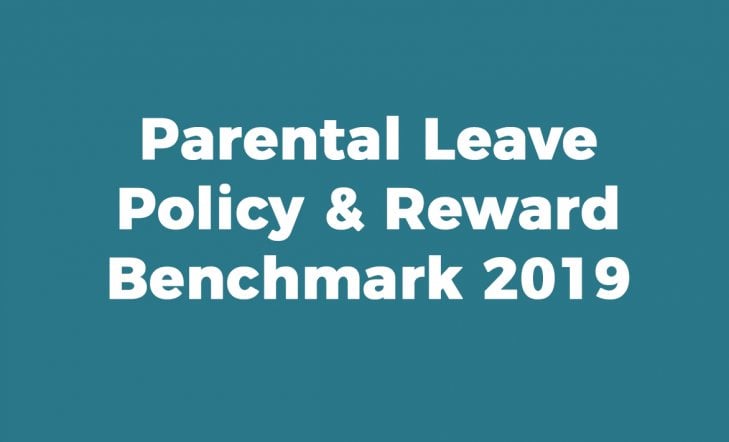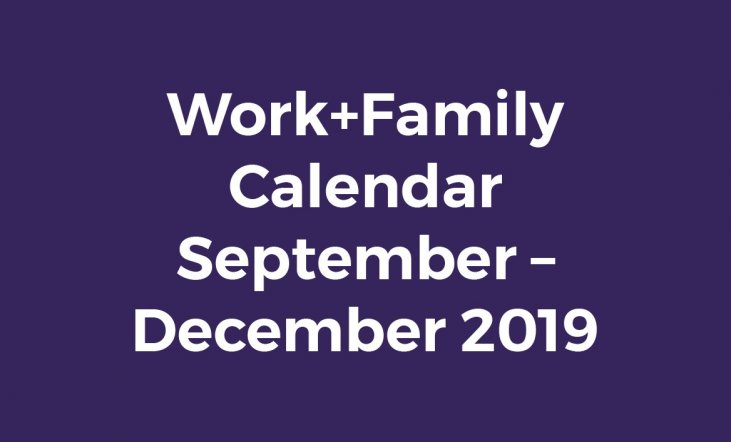Newsletter Sign Up
Regular work+family updates for
HR and diversity professionals.
My Family Care asks Michelle: With Gender Equality always a subject of interest, it is usually women who are in the spotlight. However with changes to Paternity leave and women climbing the corporate ladder, how is the role of a father in the workplace changing? What differences are you noticing as the balance of traditional roles changes? And how can both men and women learn to adapt to these changes?
Family friendly
Family friendly rights have improved dramatically over the last few years with increases in maternity leave and maternity pay and the introduction of extended paternity leave.
The Government is now planning to introduce shared maternity and paternity leave from October 2015 so that, after the first 2 weeks of a baby's life, any remaining leave will be available to either the mother or the father. This will be particularly relevant for families where the mother is an equal breadwinner to her partner, or the main breadwinner in her family. However, it is only when fathers feel able to take advantage of these increased paternity and parental rights that we will have true equality in the workplace.
We will only have a level playing field at interview stage when employers view men and women in the same way and genuinely believe that there is an equal chance of a man taking an extended period of parental leave to care for his children, as there is of a woman taking additional maternity leave.
Traditionally there has been a low take-up in other European countries of increased paternity rights and we need to consider why the take-up is so low here in the UK as well. Is it just a result of the economic climate? My view is that working fathers are concerned about being penalised financially in terms of pay, bonus and hindered in their career progression if they are seen to take advantage of family-friendly employment rights, which apply equally to men. The issues frequently faced by working mothers may well become parental, rather than solely maternal and we may see more discrimination claims from working fathers.
Leaving work with pride
There also seems to be a cultural gender difference between the way in which mothers and fathers explain their childcare commitments in their workplaces. For example, women tend to be more vocal about the fact that they are leaving work early or taking a half day's leave to attend their child's sports day or Christmas play, whereas men tend not to be so vocal about the fact that the reason for their leave or flexible working is due to childcare commitments. We need more male role models in the workplace who are proud and open about the fact that they are working fathers with professional and family commitments of equal importance to them.
Many fathers want to be more hands-on with their children and spend more time with them. In families where both parents are professionals and earn an equal, or similar level of salary, or where the female is the main breadwinner (and the number of such families are increasing rapidly), then it is much easier to obtain an equilibrium when both parents share the juggling act, rather than just the mother having to do so alone. Women need to think carefully about re-negotiating their working hours to fit around their children, but also re-negotiating their social contract at home when they return from maternity leave, so that the household chores are shared equally too.
Debates are often had about whether parents should be giving their daughters appropriate career advice at an early stage, about what kind of career is compatible with having a fulfilling family life, thus enabling them to make appropriate career choices early on. However, in my view, such careers advice should not only be given to our daughters, but to our sons too. If the family-friendly legislation that the Government is introducing is to have the intended effect of "encouraging shared parenting from the earliest stages of pregnancy".
We are accepting that some professions cannot ever be family-friendly, whereas working parents should in my view be actively encouraging employers to value the benefits of flexible working for all parents, which will enable them to retain the skills, talent and experience of professional men and women who want to have families too. All professions can and should embrace flexible working for all parents, and parents should be actively demonstrating as positive role models how it can work across all industry sectors, with small changes being made and a positive mindset being adopted. Parents, in particular fathers, should be open about the fact that they work flexibly to fit around their childcare commitments, so that we can encourage a positive culture of "flexible working heroes".
Delayed progress
It's disappointing that the proposals to extend fathers' rights to share parental leave on a paid basis after their child's birth has been pushed back to 2015, due to fears over the impact it may have on small businesses. In my view, employers of all sizes (including SME's) should embrace these changes as happy, well-rounded employees with a good work/life balance will be more loyal and productive, which means more profit for employers in the long term, which is a win/win for both parties and the U.K. economy.
Changes in employment law to reflect society should enable parents to juggle work, children and maintain a work/life balance more effectively than ever before, should we choose to do so. However corporate culture plays a huge part in the effective implementation in practice of statutory employment rights. Employers need to work hard to ensure that their culture accords in practice with their written family friendly policies, so that it does not merely pay "lip service" to them and that mother and father role models are able to "walk the walk" as well as "talk the talk". Working parents have lots more choices available to them than their parents' generation ever had and that is a positive thing going forwards for parents, their children, employers and the U.K. economy.
Michelle Chance, Employment Partner at Kingsley Napley LLP












